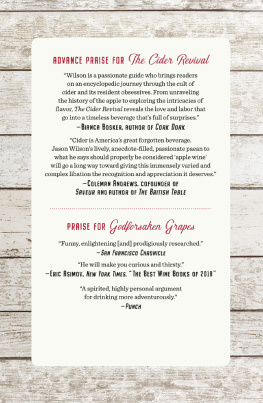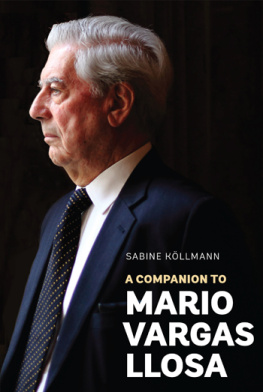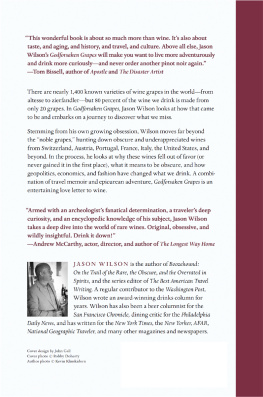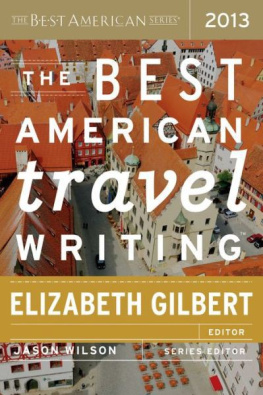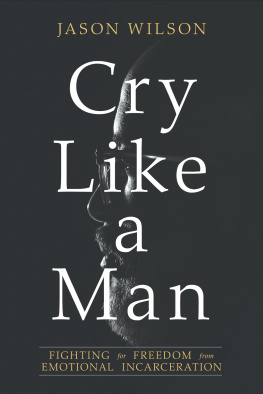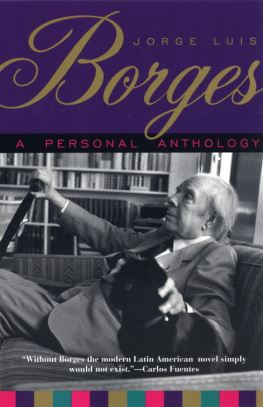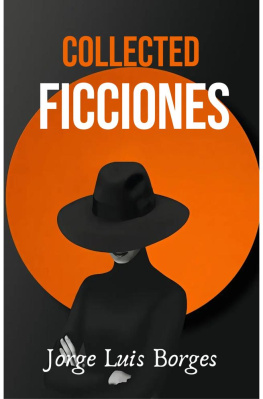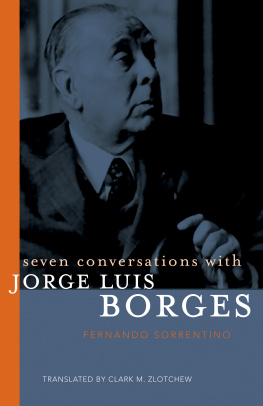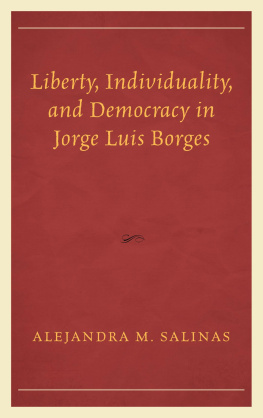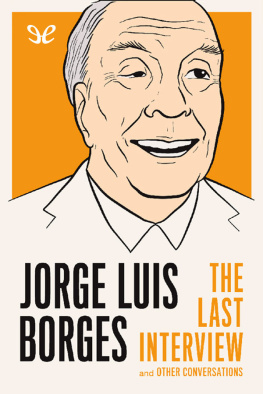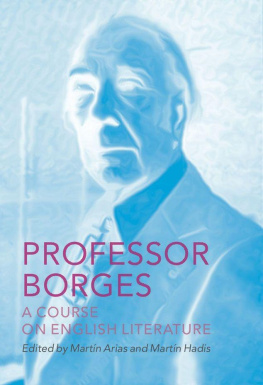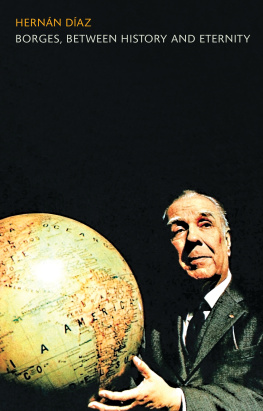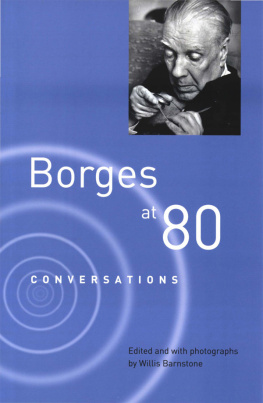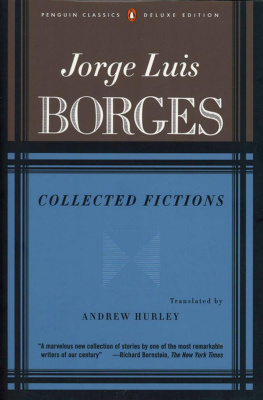Jason Wilson - Jorge Luis Borges
Here you can read online Jason Wilson - Jorge Luis Borges full text of the book (entire story) in english for free. Download pdf and epub, get meaning, cover and reviews about this ebook. year: 2006, publisher: Reaktion Books, genre: Detective and thriller. Description of the work, (preface) as well as reviews are available. Best literature library LitArk.com created for fans of good reading and offers a wide selection of genres:
Romance novel
Science fiction
Adventure
Detective
Science
History
Home and family
Prose
Art
Politics
Computer
Non-fiction
Religion
Business
Children
Humor
Choose a favorite category and find really read worthwhile books. Enjoy immersion in the world of imagination, feel the emotions of the characters or learn something new for yourself, make an fascinating discovery.

- Book:Jorge Luis Borges
- Author:
- Publisher:Reaktion Books
- Genre:
- Year:2006
- Rating:5 / 5
- Favourites:Add to favourites
- Your mark:
- 100
- 1
- 2
- 3
- 4
- 5
Jorge Luis Borges: summary, description and annotation
We offer to read an annotation, description, summary or preface (depends on what the author of the book "Jorge Luis Borges" wrote himself). If you haven't found the necessary information about the book — write in the comments, we will try to find it.
Jorge Luis Borges — read online for free the complete book (whole text) full work
Below is the text of the book, divided by pages. System saving the place of the last page read, allows you to conveniently read the book "Jorge Luis Borges" online for free, without having to search again every time where you left off. Put a bookmark, and you can go to the page where you finished reading at any time.
Font size:
Interval:
Bookmark:
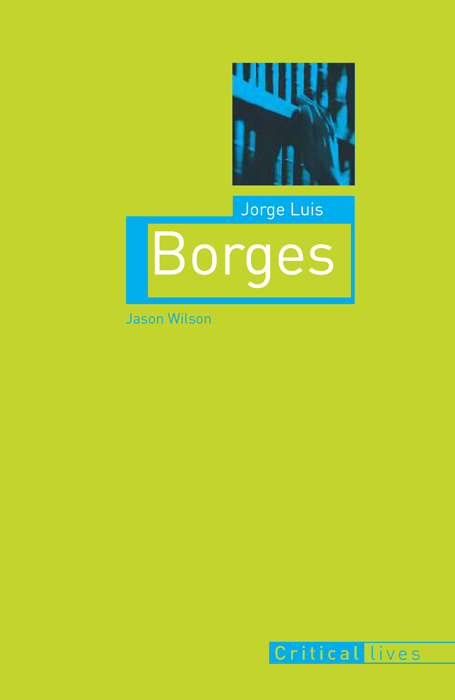
Titles in the series Critical Lives present the work of leading cultural figures of the modern period. Each book explores the life of the artist, writer, philosopher or architect in question and relates it to their major works.
In the same series
Jean Genet
Stephen Barber
Michel Foucault
David Macey
Pablo Picasso
Mary Ann Caws
Franz Kafka
Sander L. Gilman
Guy Debord
Andy Merrifield
Marcel Duchamp
Caroline Cros
Frank Lloyd Wright
Robert Mc Carter
James Joyce
Andrew Gibson
Jean-Paul Sartre
Andy Leak
Noam Chomsky
Wolfgang B. Sperlich
Jorge Luis Borges
Jason Wilson

REAKTION BOOKS
To Andrea
Published by Reaktion Books Ltd
33 Great Sutton Street
London EC1V ODX, UK
www.reaktionbooks.co.uk
First published 2006
Copyright 2006 Jason Wilson
All rights reserved
No part of this publication may be reproduced, stored in a retrieval system, or transmitted, in any form or by any means, electronic, mechanical, photocopying, recording or otherwise, without the prior permission of the publishers.
Page references in the Photo Acknowledgements and Index match the printed edition of this book.
Printed and bound in Great Britain
by Cromwell Press, Trowbridge, Wiltshire
British Library Cataloguing in Publication Data
Wilson, Jason, 1944
Jorge Luis Borges. (Critical lives)
1. Borges, Jorge Luis, 18991986 2. Authors, Argentine 20th century Biography
I. Title
868.6209
ISBN -13: 978 1 86189 286 7
ISBN -10:1 86189 286 1
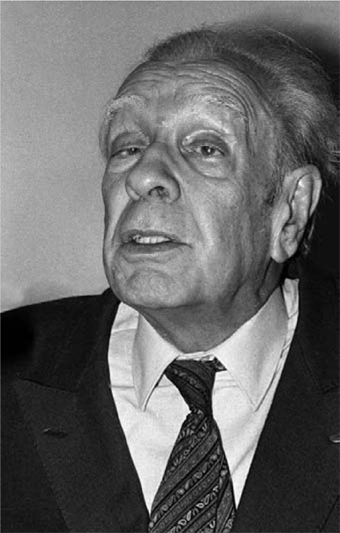
Jorge Luis Borges in Paris in 1983.
I met Borges briefly and formally several times; I heard him give his idiosyncratic talks in London, Boston and Buenos Aires. I have written on him as a literary critic and drafted the anonymous obituary for The Times. When she founded her cosmopolitan literary journal Sur in 1931 it opened with an essay by Borges in the first issue. He was her star local writer. One of her lovers, the French writer Pierre Drieu La Rochelle, remarked in 1933 that the long journey to Buenos Aires was worth it just to chat with Borges, and he had yet to write the stories that would make him famous.
I shall constantly insist on the sheer quirkiness and opacity of Borges. An Argentine critic recently grumbled that foreigners tended to view Borges as a kind of ET , an adorable alien, but that too has its grain of truth. In one of his most memorable parables called Borges and I, first published in a magazine when blind in 1957, we see Borgess self as divided, but not in any Jekyll-and-Hyde sense, with a darker side (despite Borgess adoration of Stevenson). What I take from this parable is the idea that he has no fixed self, often dramatizing an ironic version of himself in his own stories. Borges wrote a book on Buddhism with Alicia Jurado in 1976, was a constant reader of Schopenhauer and was genuinely modest, a joker who belittled himself with almost a Buddhist giggle.
The psychology of a reader is strange. Who are you when youre reading about somebody else? That vicarious experience behind reading suggests a quality in Borges, the arch-reader. Borges posited that when we read a line by Shakespeare, we become Shakespeare, and when we read Dostoevskys Crime and Punishment we become Raskolnikov. That is, as a reader we are invaded by the author, or, put another way, we are released from being our known selves. In a footnote to the fantasy story Tln, Uqbar, Orbis Tertius, written in 1940 and collected as the opening story of Ficciones (1944), we read that one of the churches in the ideal world of Tln preaches that all men in the vertiginous moment of copulation are the same man. This sexual act, strangely absent in his fictions, strips us of our societal masks, our personalities, and we become Adam and Eve again. So anyone who repeats a line from Shakespeare is Shakespeare and Shakespeare is nobody. about the film Citizen Kane (Borges was a film critic in the 1940s). This odd statement, counter to our belief in a solid self, emerges from reading, which is a casting off of false selves and a fictive adopting of an alien or alter self that lasts the act of reading itself, as short or long as it may be. In reading and copulating we melt into our deeper, anonymous selves where we are all the same. Was Borges joking? Did he believe this Platonic process? My questions show, already, how hard it is to read Borgess writing biographically. He was a teaser. You could easily refute his provocation that reading and copulation are similar acts based on self-forgetting.
How quickly within a sentence one character becomes his opposite, his double, is not based on psychology, but on how a reader becomes a character. The story The Theologians ends in heaven, where God couldnt care less about the theological squabbles and confuses Aurelian with his enemy John of Pannonia. We read: It is more correct to say that in paradise, Aurelian discovered that in the eyes of the unfathomable deity, he and John of Pannonia (the orthodox and the heretic, the abominator and the abominated, the accuser and the victim) were a single person. Underneath our apparent differences we are archetypes, one person, nobody. Borges often cited Paul Valry (more as thinker than poet) that all literature is written by one pluri named person, the human spirit. My guess is that Borges turns all literature into what a reader does with a text, and readers are usually anonymous. Both writers and readers vanish into words, which resist individuality and particularity to leave us with the essential Platonism of language. That language writes us and discards our uniqueness was Borgess wager against the literary ego.
I return to the idea of two Borgeses of his parable about the self Borges and I in El hacedor (The Maker) of 1960. One of the two selves is the famous one, who dazzled the worlds leading intellectuals and writers from John Updike to George Steiner, Octavio Paz to Michel Foucault. This Borges is the creation of his work, the Borges in the minds of his readers, who know nothing about the real fleshy, domestic Borges. This celebrated writer shared the Prix Formentor in 1961 with Samuel Beckett, though notoriously and disgracefully never the Noble Prize (in the same boat as Nabokov and Joyce). This other Borges is now the canonical writer in encyclopaedias and histories of literature. The greatest writer in Spanish since Gngora, the Cuban writer Guillermo Cabrera Infante once wrote. This celebrated Borges is vain, takes over. He has become a Monument. The humble Borges doesnt recognize himself in this other man. This man was once asked in the street if he was Borges, and he answered sometimes. Both selves share a passion for faking and exaggerating; both passed through phases of writing about the outskirts of Buenos Aires and then elaborated games about time and infinity, but the main point is that their relationship is hostile. The modest Borges wants to escape his fame, runs away, likes strolling through Buenos Aires or studying maps or tasting coffee, the simple things of life (Borges was always ascetic and frugal). The other one is constantly stopped in the streets with his blindmans cane, congratulated on simply being Borges, a beloved national icon on postage stamps and in tourist brochures. Borges ends his parable about warring selves with a conundrum about creativity: I dont know who of the two writes this page. He is both. Many times Borges looked back on an earlier self as alien; he almost accepts his own biography as a series of monads, self-sufficient, unrecognizable selves. In a note in 1941 Borges asserts his understanding of multiple selves in time: Like all men, Rudyard Kipling was many men, and Borges lists them. Was he jesting? Biography must assimilate Borgess own experiences as a reader. He claimed that when we read Poe we contact a Poe not only in each sentence that we read by him, but also the writer of the sentences as an image of somebody greater than the text itself. The biographical Poe is not identical to the Poe we create in our readers mind as we read, whom we get to know and recognize so well. So with Borges.
Font size:
Interval:
Bookmark:
Similar books «Jorge Luis Borges»
Look at similar books to Jorge Luis Borges. We have selected literature similar in name and meaning in the hope of providing readers with more options to find new, interesting, not yet read works.
Discussion, reviews of the book Jorge Luis Borges and just readers' own opinions. Leave your comments, write what you think about the work, its meaning or the main characters. Specify what exactly you liked and what you didn't like, and why you think so.

